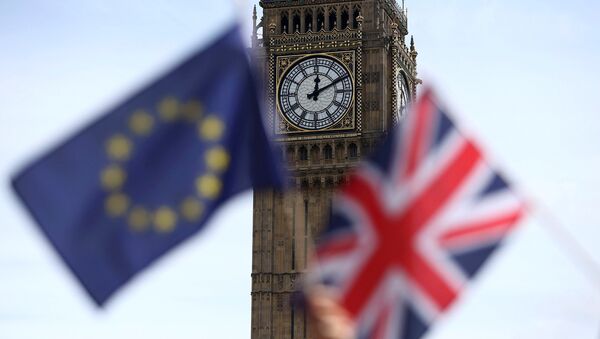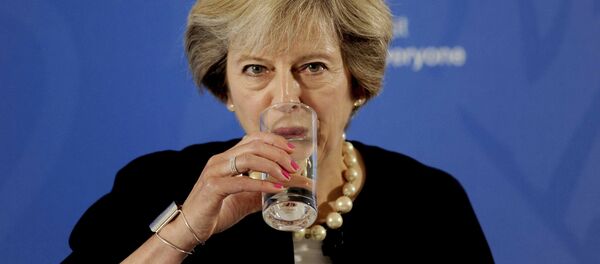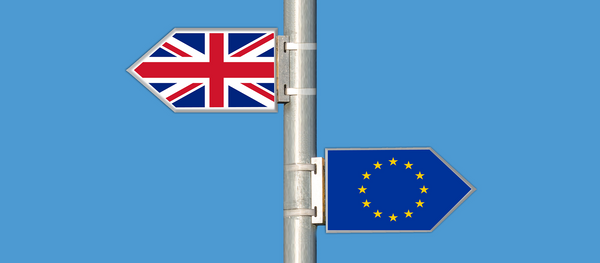Earlier, May also announced the removal of the 1972 European Communities Act, marking the first major step to ending the country’s EU membership. The act gives European Union law supremacy in Britain.
"This marks the first stage in the UK becoming a sovereign and independent country once again. It will return power and authority to the elected institutions of our county. It means that the authority of EU law in Britain will end," May was quoted as saying by The Telegraph.
Thus, London decided not to wait for the parliamentary election in Germany in September 2017 to start the formal withdrawal procedure.
However, this is rather a legal and technical move so far. It is still unclear how financial and trade ties between Britain and the EU will change or will not change. Another question is whether London will be able to keep its preferences or minimize the losses.
The US Will Benefit Financially From Brexit
There is an assumption that no matter what happens the United States will benefit the most from the upcoming transformation of the EU, an article in the Russian online newspaper Vzglyad read.
"In a time of instability in Europe, financial flows would flood in the US. There are just a few strong financial zones in the global economy, including the dollar, euro and British pound zones. Japan’s yen is also reliable but the yen zone has restrictions for global investors. When there is turmoil in Britain and the EU it is likely that the US will be used as a backup plan," the article read.
China could also join the struggle for European money. On October 1, the Chinese yuan joined the club of global reserve currencies. However, Beijing is unlikely to make it in time because the yuan is only beginning to embrace its global financial role. In addition, China’s financial instruments are aimed primarily at the domestic market.
Britain Wants to Remain a Major Exporter
According to an IMF report, the outlook will depend on whether Britain will preserve benefits from economic integration and trade ties with Brussels.
When the formal withdrawal process begins London will have to resolve a number of issues, particularly helping British companies stay capable in the global market.
"Britain has always been a great trading nation. We must do everything we can to help British businesses stay globally competitive as we prepare to thrive outside the EU," Chancellor of the Exchequer Philip Hammond said in September.
He held a meeting with the senior executives of some of Britain’s major exporters, including Honda Motor Group, GSK and Airbus Group UK, as well as representatives of British industrial and trade associations.
The struggle over Britain’s trade preferences with the EU is expected to be long, according to the article. Brussels does not want to sustain losses.
President of the European Council Donald Tusk said that in order to have access to Europe’s single market London must accept the EU’s four freedoms, including the free movement of goods, capital, services and people.
These principles are basic for a number of agreements, treaties and acts that will have to be changed after Brexit.
Future of London as World’s Financial Center
Another crucial question for the British government is whether the country will continue to play the role of a global financial center.
Data from the Bank for International Settlement (BIS) revealed that the global market share of foreign exchange trading conducted in the United Kingdom declined from 41 percent in 2013 to 37 percent in April 2016, before the Brexit vote.
Now, Asian countries are benefitting from a more favorable economic situation than in the US and Europe. However, British elites do not want London to lose its reputation as a global financial center.
The structure of the British economy is that the country has a deficit of current transactions of $140-170 billion a year, which is compensated only with foreign net investments. If London loses investment inflows the British economy could plunge into crisis because the country does not have gold and foreign exchange reserves as a safe cushion for such a scenario, the article concluded.







